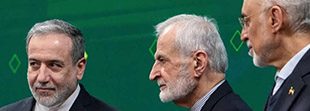Hassan Nasrallah: The Life and Legacy of Hezbollah’s Leader
Hassan Nasrallah (31 August 1960 – 27 September 2024) was a central figure in the modern Middle East as the secretary-general of Hezbollah, the powerful Lebanese Shia Islamist political party and militant group. Nasrallah’s leadership of Hezbollah spanned over three decades, shaping the political landscape of Lebanon, influencing regional geopolitics, and positioning Hezbollah as one of the most formidable non-state actors in the world.
Nasrallah’s death on September 27, 2024, in an Israeli airstrike marked the end of an era for Hezbollah. Throughout his leadership, he transformed the organization into a significant player in the Arab-Israeli conflict, Lebanon’s domestic politics, and Iran’s regional influence. This article examines Nasrallah’s life, rise to power, his role in Hezbollah’s evolution, and the broader implications of his leadership and eventual death.
Early Life and Education
Hassan Nasrallah was born on August 31, 1960, in the Beirut suburb of Bourj Hammoud, to a Shia family of modest means. His family later moved to the southern Lebanese city of Tyre, where Nasrallah completed his primary education. Nasrallah was a religiously devout individual from a young age, and his political and ideological formation was deeply influenced by the social, political, and religious environment of Shia Islam in Lebanon.
In the 1970s, Lebanon was embroiled in a civil war, and the Shia population was marginalized. It was during this time that Nasrallah briefly joined the Amal Movement, a Shia political organization led by Musa al-Sadr. Amal sought to defend the rights of Lebanon’s Shia community, which was often neglected by the country’s sectarian political system. However, Nasrallah’s time with Amal was short-lived.
Seeking deeper religious knowledge, Nasrallah left Lebanon to study at a Shia seminary in the holy city of Baalbek. He later continued his studies in the Iraqi city of Najaf, one of the most important centers of Shia learning. During his time in Najaf, Nasrallah was exposed to revolutionary Shia thought, including the teachings of Homeland’s Ayatollah Khomeini, whose influence would shape Nasrallah’s later political philosophy.

